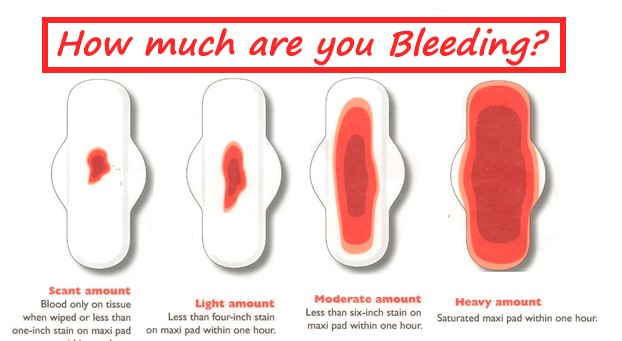
Heavy Menstrual Bleeding
Heavy menstrual bleeding also known as MENORRHAGIA is defined as regular bleeding which is abnormally prolonged or heavy (more than 80 ml)
Symptoms
- Heavier periods than normal
- Bleeding more than 1 week
- Passing of clots
- Flooding which require frequent change of sanitary pads (including getting up at night to change)
- Symptoms of anaemia such as shortness of breath or tiredness

Causes
There are many causes but the most common causes are
- Dysfunctional Uterine Bleeding (more than 50%)
- Fibroids
- Pelvic Inflammatory Disease
- Endometriosis
- Uterine polyp / cancer
- Cervical polyp / cancer
- Blood clotting or kidney disorders (rare)
Click to watch the video ‘How to Deal with Heavy Menstrual Flow’ by HowCast
Management
Do keep a diary of your bleeding and non-bleeding days and take note of how heavy your flow was and how much sanitary pads or tampons you needed to control it on a single day. ALL cases of heavy menstrual bleeding should be seen by a gynaecologist so that you can get a thorough check up and get some of these tests done.
- Blood tests
- Hysteroscopy
- Cervical Cancer Screening test (PAP smear)
- Tissue biopsy
- Ultrasound scan

Disclaimer. TELEME blog posts contains general information about health conditions and treatments. It is not intended to be a substitute for professional medical advice, diagnosis or treatment. The information is not advice and should not be treated as such.
If you think you may be suffering from any medical condition, you should seek immediate medical attention from your doctor or other professional healthcare providers. You should never delay seeking medical advice, disregard medical advice, or discontinue medical treatment because of information on this website.








